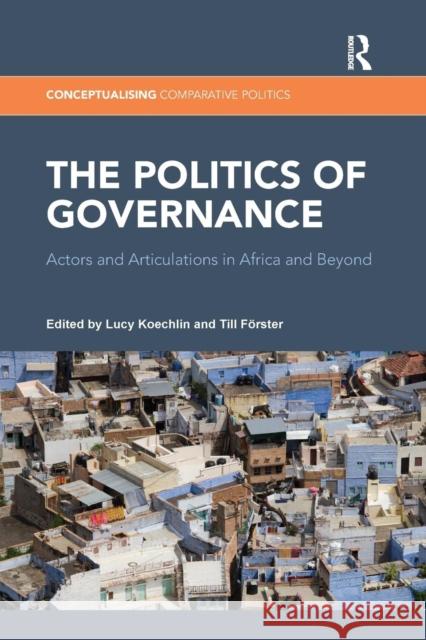The Politics of Governance: Actors and Articulations in Africa and Beyond » książka
The Politics of Governance: Actors and Articulations in Africa and Beyond
ISBN-13: 9781138287198 / Angielski / Miękka / 2016 / 226 str.
The Politics of Governance: Actors and Articulations in Africa and Beyond
ISBN-13: 9781138287198 / Angielski / Miękka / 2016 / 226 str.
(netto: 176,12 VAT: 5%)
Najniższa cena z 30 dni: 181,29
ok. 22 dni roboczych
Bez gwarancji dostawy przed świętami
Darmowa dostawa!
How do government arrangements emerge? When and how does individual agency turn into collective agency? How do sensory experiences of violence, instability, etc affect the configuration of governance arrangements? When, why, and how are governance arrangements institutionalized? This book seeks to contribute to a non-normative conceptualization of the emergence and transformation of government arrangements, and addresses the under-theorization of actors and agency in conventional governance theories. The editors and contributors theorize the concept of governance more concretely by analyzing the key actors and arrangements that define states of governance across different places and by examining its performance and development in particular settings and time periods. Each contribution to the edited volume is based on a case-study drawn from Africa, though the book argues that the core issues identified remain the same across the world, though in different empirical contexts. The contributions also range across key disciplines, from anthropology to sociology to political science. This ground-breaking volume addresses governance arrangements, discusses how social actors form such arrangements, and concludes by synthesizing an actor-centered understanding of political articulation to a general theory of governance. Scholars across disciplines such as political science, development studies, African studies, and sociology will find the book insightful.











